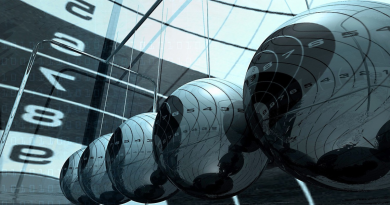Understanding gdp – deleted scene – e355
Introduction
Ever wondered what goes on behind the scenes of a hit movie? There’s always that tantalizing suggestion of gdp – deleted scene – e355 that didn’t make it to the final edit. Surprisingly, the same notion applies to GDP (Gross Domestic Product). While we typically hear about GDP as the final indicator of a country’s economic health, there are huge chunks of economic activity that don’t make it into this all-important statistic. In this post, we’ll go deep into comprehending GDP, its hidden features, and the “deleted scenes” that are eliminated from its computation.
What is GDP?
GDP stands for Gross Domestic Product, and it reflects the total monetary worth of all products and services produced inside a country’s boundaries in a certain time period. It’s broken into four primary components: Consumption (C), Investment (I), Government Spending (G), and Net Exports (NX).
- Consumption (C): This comprises all private spending by families on goods and services.
- Investment (I): Spending on company capital, household purchases, and inventory.
- Government Spending (G): Total government spending on final products and services.
- Net Exports (NX): The value of a country’s exports minus its imports.
Historical Perspective of GDP
The idea of GDP has developed greatly since its beginnings. Initially conceived in the early 20th century, GDP became the go-to metric of economic success during World War II. Over time, it has been improved to better reflect the economic activity inside a nation. However, despite its broad usage, GDP has always had its limits and critics.
The Significance of GDP
GDP is significant because it provides as a full evaluation of a country’s economic health. Policymakers, economists, and analysts utilize GDP statistics to evaluate economic patterns, establish policies, and make investment choices. It helps measure the level of life and economic advancement.
Limitations of GDP
However, GDP isn’t without its problems. It doesn’t account for the quality of life, environmental damage, or social problems. While GDP can inform us about economic activity, it doesn’t represent income distribution, health, or happiness. This is where the idea of “deleted scenes” becomes essential.
Deleted Scenes in GDP: An Introduction
gdp – deleted scene – e355 refer to substantial economic activity that aren’t represented in the official GDP calculations. Exploration These include the informal economy, unpaid work, and unlawful economic activity. Understanding these exclusions is vital for a more complete perspective of economic health.
Examples of Deleted Scenes in GDP
- The Informal Economy: This encompasses all uncontrolled economic activity, such as street selling and unregistered small companies. These actions, although considerable, are not documented in official statistics.
- Unpaid Labor and Volunteer Work: Household employment, caregiving, and volunteer activities contribute enormously to the economy yet aren’t recognized in GDP.
- Illegal Economic Activities: Activities like drug trafficking, smuggling, and other illegal transactions have enormous economic value but are removed from GDP figures.
Impact of Excluded Activities on GDP
Excluding these activities might lead to an underestimating of a country’s genuine economic output. If these “deleted scenes” were included, GDP statistics would likely be higher, presenting a more true picture of economic health and activity.
The Informal Economy
This may cover anything from street sellers to home-based companies. The scope is broad and contributes greatly to employment and economic sustainability in many developing nations.
Unpaid Labor and Volunteer Work
Household labor, such as child-rearing and caregiving, combined with volunteer work, bears significant economic significance. For instance, if we were to put a monetary value to these activities, the economic landscape would seem significantly different.
Illegal Economic Activities
Illegal economic activity, although generally disregarded, may have a considerable influence on the economy. From drug trafficking to illegal commerce, these activities produce enormous cash and alter economic dynamics in numerous ways.
Measuring the Unmeasured
Estimating the value of the informal sector, unpaid labor, and illicit activity is tough. Various approaches, such as surveys and indirect assessments, are utilized, but precision remains elusive.
Global Perspectives on GDP Exclusions
Different nations manage GDP exclusions differently. Some countries seek to assess the informal sector, while others concentrate on different indicators to present a comprehensive economic picture. Case studies from across the globe illustrate varied approaches to this complicated problem.
Future of GDP Measurement
The future of GDP measurement depends on change and innovation. Economists and policymakers are researching new approaches to integrate these “deleted scenes” and establish alternative measures that give a more holistic picture of economic health.
Conclusion
Understanding gdp – deleted scene – e355 helps us to grasp the entire spectrum of economic activity. While GDP remains a useful statistic, acknowledging its limits and the major activities it excludes is critical. By doing so, we may aim for a more accurate and comprehensive view of economic health and advancement.
FAQs
1. What is GDP and why is it important?
GDP stands for Gross Domestic Product and quantifies the entire value of goods and services generated in a nation. It’s significant because it reflects economic health and drives policy choices.
2. How does the informal economy affect GDP?
The informal economy involves uncontrolled economic activity. It’s considerable but generally removed from GDP, resulting to an overestimate of genuine economic production.
3. Why isn’t unpaid labor included in GDP?
Unpaid labor, such as domestic duties and volunteer activities, isn’t included since GDP tracks market transactions. Assigning monetary value to unpaid work complicated.
4. Can illegal activities be accurately measured for GDP?
Estimating unlawful activity is tough owing to their clandestine nature. While approaches exist, they generally lack accuracy.
5. What are alternative indicators to GDP?
Alternative indicators like the Human Development Index (HDI) and Genuine Progress Indicator (GPI) provide wider assessments of economic and social well-being.




